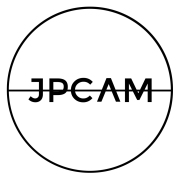▶ DIGC202 GLOBAL NETWORKS

As the world is constantly changing, majority of the things that come with it are in process of change too. People either choose to adapt to changes or stick within their comfort-zone — companies are the perfect epitome of the phrase constant change. There are many modern characteristics of workplaces and how they function today; in the book Liquid Life, Convergence Culture, and Media Work, Mark Deuze explains that there is such thing as “new capitalism” where there is always constant change, permanent flux as well as structural indeterminacy. According to Zygmunt Bauman, just like the title of this blog post — he argues that we are now living a ‘liquid’ lifestyle where life is in a constant uncertainty and is usually precarious.
So just from those two examples I can already foresee that liquid labour and the idea of ‘liquid’ being incorporated into lifestyle is becoming more common, I personally think it is a good idea to continue this movement. We can all guarantee that we don’t know yet what the future holds, but we can know for sure that the future won’t be the same as the present — taking into account the idea of a ‘liquid’ life — things will always be constantly changing whether we like it or not. Things may get more difficult or simple it really depends on the situation, thus resulting in people having to adapt into different methods of handling a situation either making it easier and effective in the long run or affordable yet time consuming.
Workplaces are slowly changing and adapting all the time, in this case they do this because of the economy. Either a company has a centralised network where there is a main source that has the information and passes out the information to all the nodes, or the company has a more distributed network where there is no main source that holds information — instead all the nodes are equal. This is why companies have decided to use liquid labour as their new method of working, information is always free flow thus making things more fluid and flexible. Although despite being able to reach high scalability and good control, having a distributed network means that information may get repetitive because unlike the centralised network; a distributed one is not able to detect information that is repeated.

References:
- Deuze, M. (2006). Liquid Life, Convergence Culture, and Media Work. Retrieved from https://scholarworks.iu.edu/dspace/bitstream/handle/2022/3343/Liquid Life Deuze 2006.pdf
- Gregg, M. ‘Function Creep: Communication technologies and anticipatory labour in the information workplace’

So will media-based jobs in the future start to develop a more fluid and timeless workload? This will probably be troubling for a centralized based system.
LikeLike